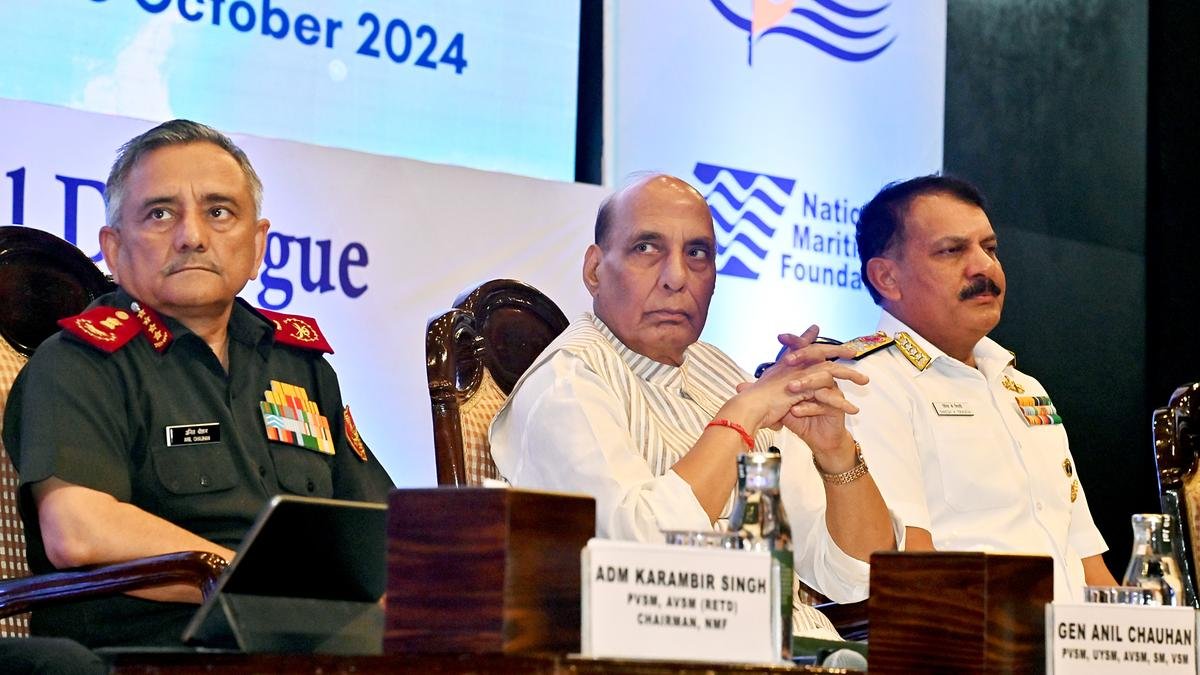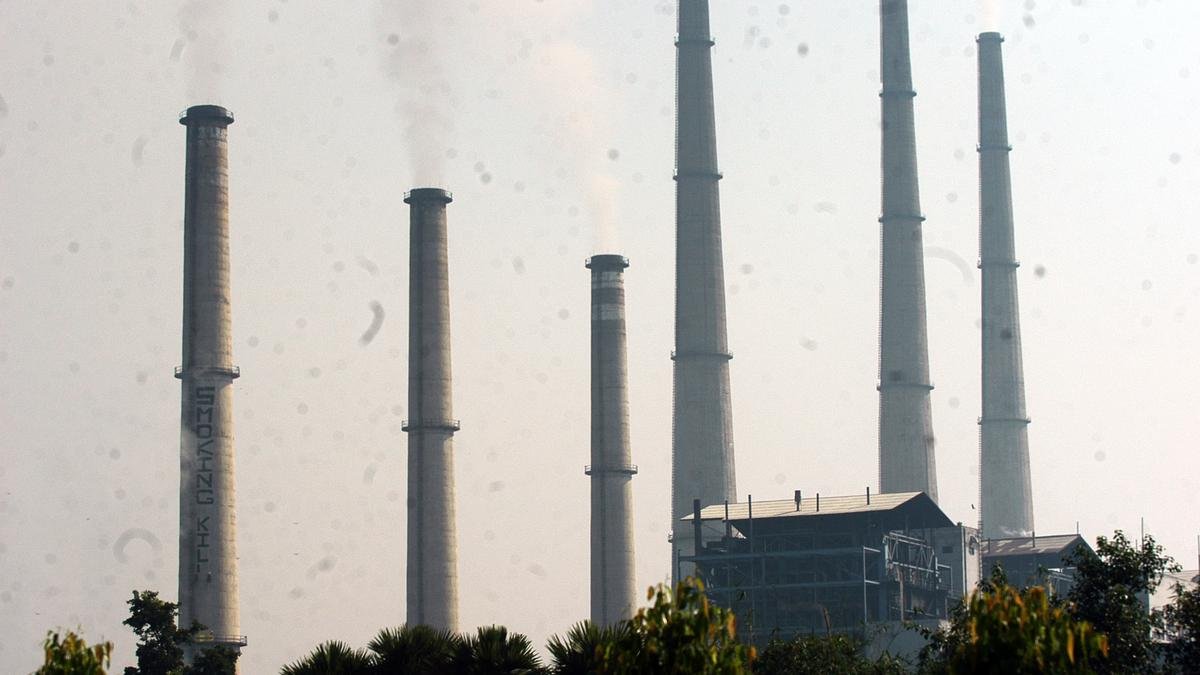“Our interests are not in conflict with any other country,” Defence Minister Rajnath Singh said on Friday (October 4, 2024), emphasising that at the same time, interests of “any other nation should not come in conflict with other nations.”
Reiterating India’s “unwavering” resolve to a rule-based international order, respect for international law, and adherence to the principles enshrined in the UN Convention on the Law of the Sea, describing them as the cornerstones of foreign policy, Mr. Singh said, “India has consistently advocated for a peaceful resolution to disputes and has sought to promote cooperation among nations in the Indo-Pacific, with a strong emphasis on the centrality of ASEAN in fostering regional dialogue, stability and collective growth.”
He was addressing the Indo-Pacific Regional Dialogue (IPRD) jointly organised by the Indian Navy and the National Maritime Foundation (NMF).
India’s vision for Indo-Pacific was based on fostering partnerships through sustainable development, economic growth and mutual security, the Minister said, adding that the engagement with regional partners, including joint exercises and information-sharing initiatives, was aimed at strengthening the collective maritime security framework. “We’re now considered as a credible and preferred security partner and first responder in the region.”
‘Looming threat’
The Indo-Pacific region emerged as the world’s most dynamic geopolitical zone and was the centre of gravity of the economic and strategic interests, Mr. Singh said, also speaking of the ‘Global Commons’ and further the concept of ‘tragedy of the commons’, a scenario where individuals, acting in their own self-interest, deplete shared resources, leading to collective ruin. He termed it a looming threat, which could only be dealt with if the international community came together and acted swiftly for sustainable management of shared global commons.
“Evidence of this tragedy, including environmental degradation, over-extraction of certain resources, and increasing geopolitical tensions is already visible. We are witnessing localised incidents of conflict and a wider undercurrent of international tension in recent years. As the world transforms from an industrial world to a technological world, from a fossil fuel-based economy to renewables, this threat is only going to increase, unless we take pre-emptive steps to control possible damage,” Mr. Singh added.
He also expressed concern over certain attempts to monopolise and weaponise critical resources for strategic reasons, terming these tendencies as not conducive for the global good. At the dialogue, Mr. Singh released a book titled ‘Maritime India: Temporal and Spatial Continuum’ published by the NMF.
The IPRD is an annual apex-level regional strategic dialogue of the Indian Navy which aims to sequentially flush out the seven spokes of the Indo-Pacific Oceans Initiative (IPOI), the Defence Ministry said. “Through its central theme of ‘Resource-Geopolitics and Security in the Indo-Pacific’, this year’s conference focuses on ‘Marine Resources’ and ‘Maritime Security’ pillars of IPOI.”
Published – October 04, 2024 09:00 pm IST







